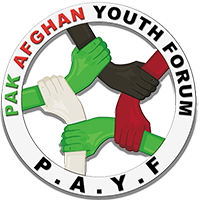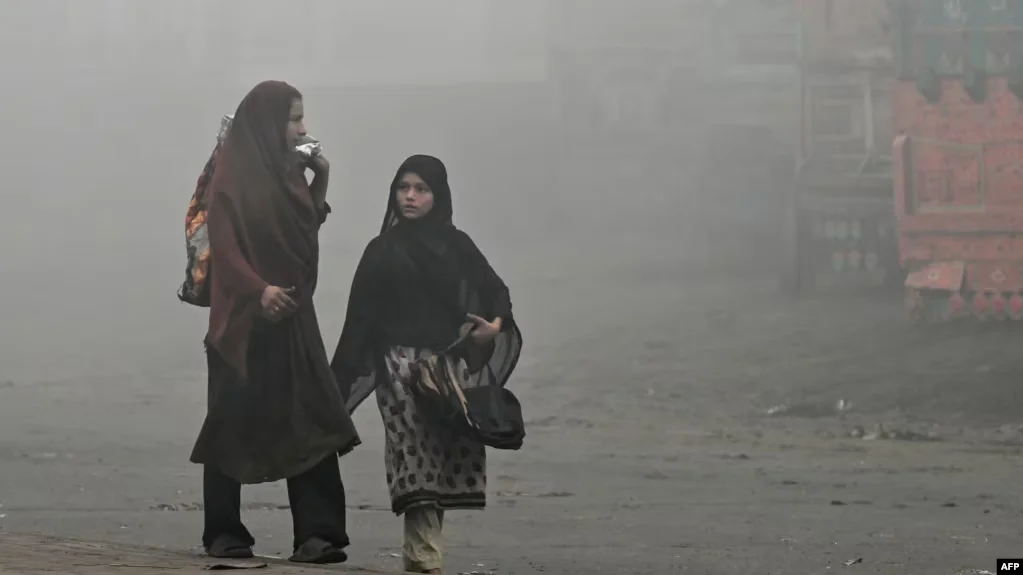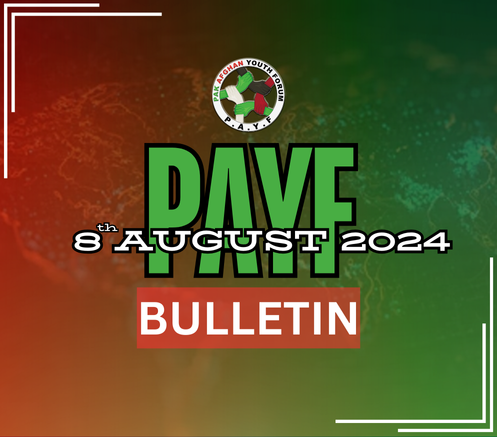Islamabad — The United Nations has warned that high amount of air pollution in Pakistan’s most populous province, Punjab, is posing severe risks to people, including more than 11 million children under the age of five.
Air pollution levels broke records in the provincial capital, Lahore, and several other districts this past week, surpassing the World Health Organization’s air quality guidelines by more than 100 times, the U.N. Children’s Fund, or UNICEF, reported in a statement Monday.
It stated that hundreds of people, including dozens of children, have been hospitalized in hard-hit cities, and the pollution is so severe that it is visible from space.
“As smog continues to persist in Punjab province, I am extremely concerned about the well-being of young children who are forced to breathe polluted, toxic air,” said Abdullah Fadil, the UNICEF representative in Pakistan.
He called for urgent efforts to reduce air pollution and protect children’s health, noting that even before the record-breaking levels of smog, about 12% of deaths in children under five in Pakistan were attributed to air pollution.
“The impact of this year’s extraordinary smog will take time to assess, but we know that doubling and tripling the amount of pollution in the air will have devastating effects, particularly on children and pregnant women,” Fadil said.
The combination of smoke, emissions, and dust has lately become an annual challenge for the provincial government, particularly in Lahore. Research reports cited vehicles, construction dust, and smoke from farm fires as major contributors.
Residents in Lahore, the second biggest city in Pakistan, have increasingly complained in media interviews that smog irritates the eyes and causes throat discomfort when outdoors. Most people cannot afford air purifiers inside homes to limit the harm from toxic particles infiltrating doors and windows.
Authorities in Punjab have closed schools in smog-affected districts until mid-November in their bid to protect children from smog, particularly during the morning commute when levels are often at their highest. Additionally, visits to parks, zoos, playgrounds, and other recreational places have been prohibited until November 17 to limit public exposure to air pollution.
The provincial government has made it compulsory for everyone in Lahore to wear a face mask, while 50% of employees must work from home as part of what is dubbed the “green lockdown” in the city. Barbecuing food without filters at restaurants is banned, and wedding halls must close at 10 p.m.
Also See: Lahore Closes Primary Schools Amid Unprecedented Pollution Levels
Fadil expressed concern that suspending educational activities has disrupted the learning of nearly 16 million children in a country where more than 26 million youngsters are already out of school.
At the same time, he said that reducing emissions from agriculture and industry, along with promoting clean energy and transportation, are not only essential for climate change mitigation but also for protecting children’s health.
The UNICEF country chief described the opening of a two-week annual U.N. climate conference in Azerbaijan on Monday as a “real opportunity” to turn words into action before it’s too late.
“We cannot afford to let our babies breathe toxic air. We cannot let the health, education, and well-being of millions of children suffer. For the sake of our children and their future, we must take urgent action today.”
Delegates from nearly 200 countries are expected to attend the U.N. conference, COP29, in Baku, the capital of Azerbaijan. They plan to discuss initiatives to promote climate change solutions, especially after a year of weather disasters that have increased developing countries’ demands for climate adaptation funding.
This news is sourced from [VoA] and is for informational purposes only.



